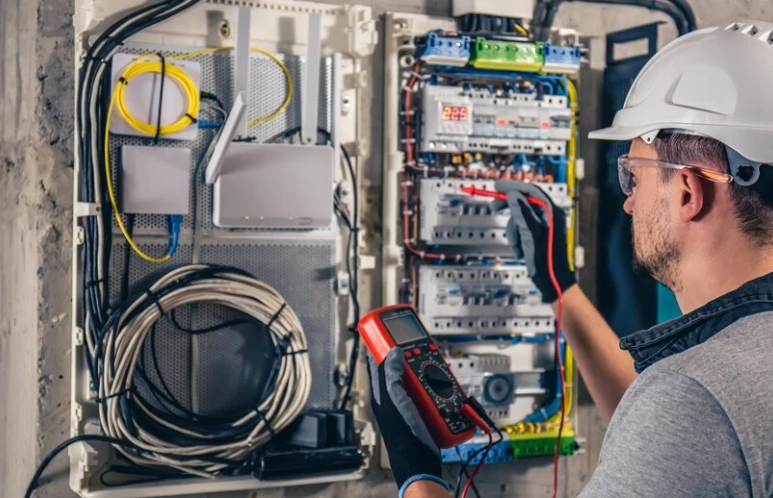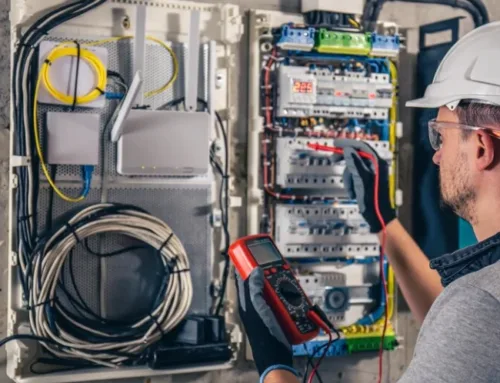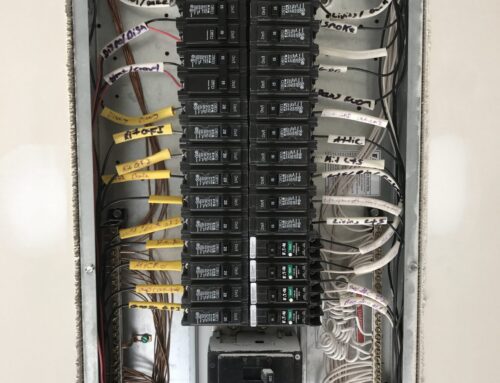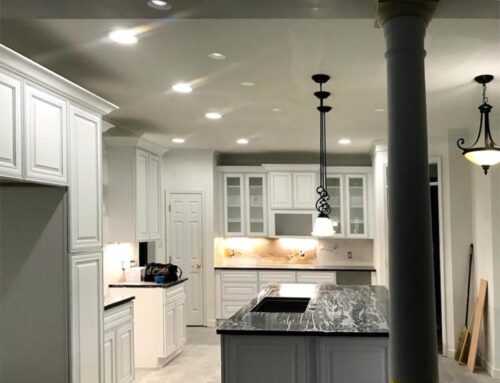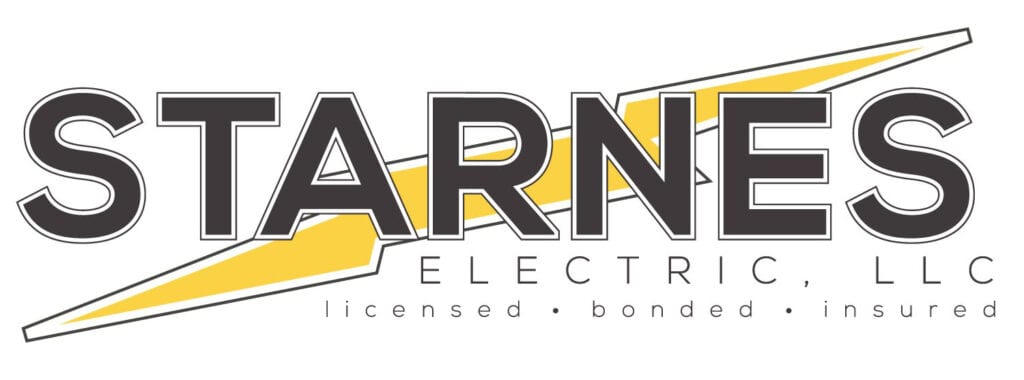A tight utility closet or a crammed basement might seem like no big deal—until it messes with your electrical panel. NEC panel clearance rules aren’t just about neat installations. They’re about safety, access, and keeping your system working the way it should.
Skipping those clearances or squeezing panels into tight spots can lead to serious headaches—think failed inspections, costly repairs, and real safety risks. This stuff matters whether you’re a homeowner, contractor, or just trying to stay up to code. Understanding what the National Electrical Code actually requires (and why) makes it way easier to avoid mistakes that could cost you later.
What are the NEC Panel Clearance Requirements For Electrical Safety?
The National Electrical Code (NEC) sets specific standards for the installation and maintenance of electrical systems, including panel clearance. These rules are designed to ensure that electrical panels remain accessible, safe, and functional, preventing hazardous situations that could lead to fires or electrocution.
The NEC requires specific clearance space around electrical panels for a few key reasons, including:
- Accessibility: The panel must be easily accessible for inspection, maintenance, and emergency response. In an emergency, a jammed electrical panel can delay response times and make it harder for first responders or electricians to fix the problem.
- Airflow: Electrical panels generate heat during operation. If there is insufficient space for proper airflow, the panel may overheat, leading to component failure or fire hazards.
- Safe Operation: Clear space ensures that anyone working on the panel can do so without obstruction or risk of injury.
The general NEC panel clearance requirements are as follows:
- Minimum Working Space: The code requires at least a 30-inch wide working space in front of the panel, with a depth of at least 36 inches. This ensures that you or a technician can easily access the panel for operation or repairs.
- Height Requirements: The electrical panel should be installed at a height that allows clear access and visibility, typically between 4 feet and 6.5 feet from the floor. This ensures that the panel is not too high to reach or too low to work on comfortably.
- Clear of Obstructions: The space in front of the panel should be clear of anything that could block access or cause hazards, such as furniture, boxes, or stored items. Additionally, there should be no plumbing, piping, or other electrical equipment installed within this space.
How Can Inadequate Panel Clearance Lead to Electrical Hazards?
Now that we understand the NEC panel clearance requirements, it’s important to know what happens when these standards aren’t followed. Inadequate panel clearance can result in a variety of electrical hazards, which pose serious risks to both property and people.
1. Overheating and Fire Risk
Electrical panels are designed to distribute electricity safely throughout a building. However, they generate heat during operation, especially when high electrical loads are being used. Without proper clearance for ventilation, the heat can build up, causing components inside the panel to overheat. In extreme cases, this can result in the melting of wires or circuit breakers, leading to electrical fires.
2. Difficulty in Emergency Situations
During an emergency, having proper access to your electrical panel can make a life-saving difference. If a fire breaks out or you need to shut off the power quickly, inadequate clearance could prevent quick access. It’s even worse in commercial spaces where multiple people might need to access the panel in an emergency. A crowded or blocked space can significantly delay emergency responses.
3. Increased Risk of Electrocution
Working in tight spaces around an electrical panel can increase the risk of electrocution. If technicians or electricians need to operate within cramped conditions, they might inadvertently touch live wires or other components, leading to shock or injury. It’s essential to maintain the correct clearance to minimize these risks.
4. Improper Repairs and Maintenance
If an electrical panel is crowded or obstructed, it’s difficult to perform routine maintenance or repair work. A technician may have to work around obstacles or use improper tools to access the panel, increasing the chance of mistakes or incomplete work. Failing to properly maintain the panel can cause it to malfunction or fail prematurely.
5. Equipment Malfunction
When an electrical panel is surrounded by clutter or objects that restrict airflow, the internal components are at risk of malfunctioning. The panel could struggle to distribute electricity evenly or fail to handle electrical surges, which can damage your appliances or other electrical equipment.
Why is Proper Spacing Around an Electrical Panel Important?
Proper spacing around an electrical panel isn’t just a technical requirement—it’s a matter of safety and efficiency. Having the right amount of space around your electrical panel ensures the following:
1. Safety for Homeowners and Technicians
For the homeowners and technicians who might have to access your panel, proper clearance guarantees that they won’t face unnecessary risks. A clear space reduces the chances of an accident occurring, whether that’s a trip hazard, a fire risk, or even a simple issue like being unable to open the panel door fully to perform necessary operations.
2. Compliance with Code
The NEC panel clearance rules are legally binding. If you’re building or renovating your home or commercial property, not adhering to these codes can lead to fines, delays in inspections, or even a failure to pass safety inspections. In extreme cases, violating these codes could lead to issues with your insurance coverage, particularly if an accident occurs as a result of poor panel clearance.
3. Preventing Future Issues
Even if your electrical system seems fine now, neglecting proper spacing around your panel can lead to future issues. An overcrowded or poorly ventilated space might not show problems immediately but could gradually develop into major safety hazards over time. Planning for sufficient panel clearance today can save you from much larger—and more expensive—problems tomorrow.
4. Quick and Efficient Service
When electricians or other professionals come to work on your electrical panel, the more space they have, the quicker and more efficiently they can do the job. Whether it’s replacing a faulty breaker, conducting routine maintenance, or addressing emergency issues, proper spacing allows them to complete tasks with greater precision and speed.
What are the Common Violations of NEC Panel Clearance Rules?
Despite the importance of adhering to NEC panel clearance requirements, many properties are found to have common violations of these rules. Let’s take a look at some of the most frequent clearance violations:
1. Clutter in Front of the Panel
A common violation is storing items in front of the electrical panel, such as furniture, boxes, or cleaning supplies. This not only blocks access to the panel but also creates a fire hazard. It’s critical that the space in front of your electrical panel remains clear at all times.
2. Inadequate Space Around the Panel
In many older buildings or poorly designed spaces, the electrical panel is installed too close to walls, other electrical devices, or obstructions like pipes. This can prevent adequate airflow and make it difficult to perform necessary work.
3. Panel Height Too Low or Too High
Sometimes, the electrical panel is installed too low to the ground or too high, making it difficult to access. The NEC requires a specific height range to ensure the panel is easy to reach and operate. If the panel is out of this range, it may violate safety standards and hinder access.
4. Obstructions Above the Panel
In some cases, objects may be stored above the electrical panel, blocking access to the top of the panel and making it difficult to open the panel’s cover. This can delay service or repairs and contribute to overheating.
5. Improperly Placed Panels in Small Rooms
Some builders may place the electrical panel in cramped, small rooms where there’s not enough clearance for safe operation. This can also violate NEC standards, making it impossible to access the panel in an emergency or routine inspection.
Don’t Let Small Spaces Cause Big Problems
Understanding and adhering to NEC panel clearance requirements is more than just a matter of compliance—it’s a critical component of electrical safety. Whether you’re a homeowner, contractor, or electrician, ensuring that your electrical panel has proper clearance can save you from hazardous situations, prevent costly repairs, and ensure that your electrical system operates smoothly.
If you’re unsure whether your electrical panel is up to code or need assistance with any electrical issues, don’t hesitate to call a professional. Taking the time to address these potential risks now can help you avoid major electrical problems in the future. Keep your space clear, your panel accessible, and your home or business safe from electrical hazards.
Why Choose Starnes Electric LLC for Your Electrical Safety and Efficiency?
At Starnes Electric LLC, we specialize in providing top-notch electrical services to ensure that your home or business operates safely and efficiently. Our team is dedicated to following all NEC panel clearance requirements, preventing hazards, and optimizing your electrical system’s performance.
Here’s how our services can benefit you:
- Expert Electrical Inspections: We thoroughly inspect your electrical panels, wiring, and systems to identify any code violations or potential issues that could lead to dangerous situations or inefficient operation.
- Customized Solutions for Your Electrical Needs: Whether you’re installing new electrical panels, upgrading your system, or addressing specific safety concerns, we tailor our services to fit your unique needs.
- NEC Code Compliance: We ensure that all of our work meets the latest NEC standards, including panel clearance, to keep you in full compliance and prevent costly fines or safety hazards.
- Emergency Electrical Services: Our team is available for emergency repairs to address any electrical issues quickly and safely, minimizing risks and downtime.
Choose Starnes Electric LLC for a trusted partner in electrical safety and performance. Contact us today to schedule an inspection or discuss how we can improve your electrical system’s reliability and safety!

